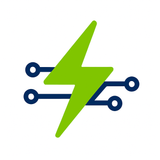Silicon Valley's Hard Turn: The Rise of AI and "Hard Tech"

Silicon Valley's Hard Turn: The Rise of AI and "Hard Tech"
For decades, Silicon Valley has been synonymous with software, social media, and the internet. But a new era is dawning, one where artificial intelligence, advanced hardware, and tangible products are taking center stage. This shift towards "hard tech" is reshaping the landscape of the Valley, bringing new opportunities and challenges.

HOK Designs Apple's Newest Silicon Valley Campus | ArchDaily
What is "Hard Tech"?
"Hard tech" refers to companies and technologies that involve physical products, advanced engineering, and often, significant capital investment. Unlike the relatively low barrier to entry for many software startups, hard tech ventures require specialized expertise, complex manufacturing processes, and longer development cycles. Examples include:
- Artificial Intelligence (AI)
- Robotics
- Biotechnology
- Advanced Materials
- Clean Energy
Driving Forces Behind the Shift
Several factors are contributing to Silicon Valley's hard tech renaissance:
- AI Advancements: The rapid progress in AI is creating demand for specialized hardware and infrastructure, fueling innovation in chip design, data centers, and autonomous systems.
- Market Saturation: The software and social media markets are becoming increasingly crowded, leading investors and entrepreneurs to seek new frontiers in more tangible sectors.
- Geopolitical Factors: Concerns about supply chain security and national competitiveness are driving investment in domestic manufacturing and advanced technologies.
- Sustainability Imperatives: The growing urgency to address climate change is spurring innovation in clean energy, electric vehicles, and sustainable materials.
Implications and Challenges
This shift has significant implications for Silicon Valley's economy, workforce, and culture. It requires a new set of skills, a different approach to funding, and a greater emphasis on collaboration between research institutions, startups, and established companies. Some of the challenges include:
- Talent Gap: Finding and retaining engineers, scientists, and manufacturing experts with the necessary skills for hard tech ventures.
- Capital Intensity: Hard tech companies often require significantly more capital than software startups, making funding more challenging.
- Longer Development Cycles: Developing and commercializing hard tech products can take years, requiring patience and long-term investment.
- Regulatory Hurdles: Navigating complex regulations related to manufacturing, safety, and environmental impact.
Key Takeaways
Silicon Valley is undergoing a significant transformation, driven by the rise of AI and the resurgence of "hard tech." This shift presents both opportunities and challenges for the region, requiring a new focus on talent development, capital investment, and strategic partnerships. As Silicon Valley embraces this new era, it has the potential to lead the world in solving some of humanity's most pressing challenges, from climate change to healthcare.





